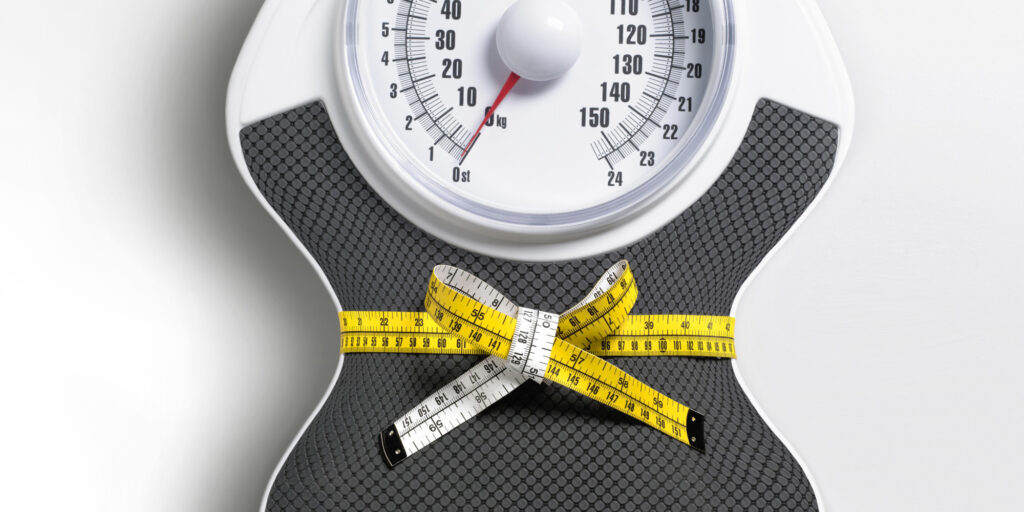Can’t seem to lose weight no matter what you do? Now is the time to read this
Losing weight can seem unattainable at times.
Even if you’re controlling your calories and carbs, eating adequate protein, exercising consistently, and doing everything else recommended to help you lose weight, the scale won’t budge.
This is a fairly common issue that may be extremely aggravating.
Continue reading to find out why losing weight might be so tough — and whether it’s a good idea to keep trying.
Although this post focuses on women, the majority of the principles are applicable to everyone.
The weight-loss industry is a billion-dollar business

On a global scale, losing weight is enormous business.
Weight loss programs and products are predicted to produce more than $150 billion in annual profits in the United States and Europe alone.
The most expensive programs are those that need you to purchase specialized meals, supplements, and other items.
Despite the fact that “fat burners” and other diet medicines are popular, they are frequently unregulated and can be harmful.
Unfortunately, even people who aren’t overly overweight appear to be prepared to take the risk of taking diet pills.
According to a study involving over 16,000 adults, nearly one-third of those who took weight loss drugs were not obese before taking the tablets.
Many people clearly put forth a lot of time and money in order to reduce weight.
Even if you don’t enroll in a weight-loss program or purchase diet pills or products, you may find yourself spending a significant amount of your spare time and energy to the quest of thinness.
Why do so many women fail to achieve their weight-loss goals?
Many women invest a lot of money, time, and effort into attempting to lose weight.
Despite this, some appear to be making little progress.
Your capacity to reduce weight is influenced by a number of things.
Situations of health
Weight loss might be difficult due to certain diseases or ailments, such as:
Lipedema: This disorder, which affects approximately one in every nine women globally, causes excess fat to collect in a woman’s hips and legs, making it extremely difficult to remove. It frequently results in easy bruising and pain.
Hypothyroidism: Low thyroid hormone levels cause a metabolic slowdown, which can impede weight loss efforts.
Insulin resistance and hormonally-driven fat deposition in the belly are symptoms of polycystic ovarian syndrome (PCOS). It’s estimated that up to 21% of reproductive-aged women are affected.
History of dieting and weight loss
If you’ve lost and gained weight in the past, or if you’ve yo-yo dieted, you’ve probably found it more difficult to reduce weight with each try.
In fact, a woman who has a long history of yo-yo dieting will have a harder time losing weight than one who has maintained a stable weight.
This is primarily due to changes in fat accumulation that occur following periods of calorie restriction, according to research.
Basically, when you start eating more after a time of restriction, your body stores more fat as a reserve in case your calorie intake drops again.
A new animal study also reveals that yo-yo dieting may trigger an immunological response in fat tissue, making fat reduction more difficult.
Bacteria in the gut may also have a role. Losing and gaining weight in cycles appears to encourage changes in gut bacteria that contribute to higher weight gain over time.
Age
Women face several challenges as they age, including the fact that losing weight is more difficult than ever.
Furthermore, even if they follow a nutritious diet, women who have never been overweight in the past may find it difficult to maintain their normal weight as they age.
Due to a decrease in muscle mass and physical activity, most women gain 5–15 pounds (2.3–6.8 kg) as they age, resulting in a slower metabolism.
Additionally, due to the numerous hormonal changes that occur during menopause, weight gain is highly prevalent. It can be quite difficult to reduce weight during and after menopause.
Influences of gestation
Unfortunately, some of your predisposition to gain weight may be attributable to circumstances over which you have little control.
Genetics is one of them, but other, less well-known ones include the conditions you were exposed to while in the womb.
Your mother’s diet and the amount of weight she gained during pregnancy are examples of these.
According to studies, women who acquire too much weight during pregnancy are more likely to have large babies who are overweight or obese as children or adults.
Furthermore, a pregnant woman’s eating habits may influence whether or not her child develops a weight problem later in life.
A recent animal study discovered that rats fed a “Western” diet while pregnant had babies with slower metabolisms who became obese at various periods throughout their lives.
Throughout history, “ideal” body sizes
Although your diet and exercise habits affect your weight, your basic form and size are mostly determined by your genes.
Indeed, evidence reveals that your genetic pattern has a significant impact on both how much you weigh and where you store fat.
It is a healthy and useful objective to take actions to minimize belly fat. On the other hand, attempting to push your body to adapt to whatever size is now fashionable is going against nature, and your efforts may end in dissatisfaction.
Various body forms and sizes have been seen to be “perfect” throughout history.
Being somewhat overweight was a desirable, feminine characteristic in women only a century ago. Thin women even attempted to gain weight in order to appear more attractive.
However, gaining weight is just as difficult for a naturally thin person as losing it is for a naturally larger person.
During the Renaissance, Dutch artist Peter Paul Rubens became famous for his bare-chested paintings of full-figured ladies, whom he considered to be the perfection of beauty.
The term “Rubenesque” is still used today to describe a lovely, full-figured woman.
The French Impressionists, including Monet, Renoir, and Cézann, portrayed attractive women of the day in the 1800s.
Many of the women depicted in these paintings were significantly larger than today’s runway models.
There’s no doubting that the “ideal” female form has evolved significantly in the last 60 years, becoming thin and toned rather than rounded and soft.
Women in the past, on the other hand, were not bombarded with frequently unreachable pictures on the Internet and television.
Women today are likewise bombarded with advertisements for programs and goods that promise to help them achieve the “ideal” figure of the day.

Weight is perceived differently in different cultures
Although a slim figure is appealing in the United States and much of Europe, people in other areas of the world prefer a larger, more rounded shape.
Carrying a little excess weight is associated with fertility, friendliness, happiness, vigor, and social harmony in many cultures.
Surprisingly, the richest countries place a premium on thinness, whereas the converse is true in poorer ones.
According to experts who looked at data from a variety of non-Western countries, 81 percent of males favored plump or somewhat overweight women, while 90 percent chose women with broad hips and legs.
Even in affluent countries, however, what constitutes a “ideal” figure appears to differ widely depending on personal and regional tastes.
The range of responses was rather startling when 18 graphic designers from across the world were asked to change a plus-size model’s body into the “perfect” body.
Body mass indices (BMIs) for the modified versions ranged from 17 in China to 25.5 in Spain, which corresponds to weights of 102–153 pounds (46–69 kg) for a woman standing 5’5′′ (165 cm).
With the exception of the BMI of 17, which is considered underweight, this demonstrates that a wide range of body sizes and forms are perceived as attractive and desirable, regardless of how closely they approximate the “perfect” body shape.
If is necessary to lose weight
If your weight is impacting your health, it makes logical to keep trying to lose weight.
Obesity, particularly morbid obesity, can raise illness risk and shorten life expectancy. Furthermore, because to restricted mobility, low energy levels, and social stigma, it can make day-to-day living difficult.
According to research, eating protein for breakfast and avoiding processed carbs, as well as the other measures discussed in this article, are two of the most effective ways to lose weight.
Here are some extra habits that may assist you in losing weight:
- Joining a support group can give you with encouragement, accountability, and motivation. You can find online communities for lipedema and PCOS in addition to general weight loss organizations offline, online, and on Facebook.
- Recognize progress, no matter how slow it is: Accept the fact that you will most likely lose weight slowly and may hit a weight loss plateau. Even losing a couple of pounds per month is a significant achievement.
- When it comes to choosing a goal weight, be realistic. Don’t try to reach your “ideal” weight. Insulin sensitivity can be improved by losing as little as 5% of your body weight, and further weight loss can lead to significant advantages.
- Celebrate non-scale victories: It’s vital to focus on gains in mobility, energy, lab values, and other positive health changes, especially if weight reduction is frustratingly slow.
Although adopting these tactics into your daily routine will not ensure weight loss, it will increase your chances.
Rather than focusing on weight loss, shift your focus to good health
Many women’s weight loss objectives are motivated by a desire to improve their appearance rather than by a desire to improve their health.
Maybe you’ve dropped some weight but can’t seem to get rid of “those final 10–20 pounds.”
Maybe you’ve always been a little bigger than average, but you’ve been attempting to lose weight in order to fit into a lower dress size.
If you feel like you’ve tried every diet and weight-loss suggestion and still haven’t gotten results despite your best efforts, you’re not alone.
If that’s the case, it could be a good idea to refocus your efforts on becoming as healthy, strong, and energetic as possible.
- Focus on fitness: Studies have proven that being fit is more important than being skinny when it comes to health. Working out on a regular basis might also bring a slew of other advantages.
- Develop a healthier connection with food by focusing on nutritional foods, paying attention to hunger and fullness cues, and learning to eat instinctively rather than dieting.
- Take a look at the outcomes of your prior dieting attempts: It’s important to remember that losing and gaining weight frequently results in higher fat storage and weight growth over time.
Aside from reducing stress and frustration, refocusing your attention to make optimal health your primary aim may also result in natural weight loss over time.

Learn to appreciate and love your body
Developing a sense of gratitude for your body can improve your health, happiness, and outlook on life.
Repeated weight loss attempts, according to research, may not only lead to weight gain, but also to emotional changes and an increased chance of developing unhealthy behaviors like binge eating.
On the other side, there’s evidence that being satisfied with your weight, regardless of size, can lead to healthier behaviors and overall health.
Here are some suggestions for learning to accept and appreciate your body:
- Instead of focusing on your weight, measurements, or clothing size, consider how you feel, who you are, and what you want to achieve in life.
- Avoid comparing yourself to others: Never compare your body to that of another. You are one-of-a-kind and possess numerous great features. Concentrate on becoming the best version of yourself.
- Exercise to feel and perform better: Rather than working out to burn calories, engage in physical exercise because it helps you feel better. You have earned the right to feel your best now and in the future.
Recognize that learning to embrace your body after years of wanting to change it may take some time. That’s very understandable. Take things one day at a time and try to keep your mind on the bright side.
Last but not least
For many women, the inability to shed weight can be a cause of frustration in a society that emphasizes thinness.
And it’s true that decreasing weight is crucial when your health and well-being are at risk.
Attempting to acquire an unrealistic size, on the other hand, can cause more harm than benefit.
Avoid comparing yourself by learning to love and appreciate your body, exercising and adopting lifestyle practices to maintain yourself as healthy as possible.
This may have a significant impact on your overall health, self-esteem, and quality of life.



















